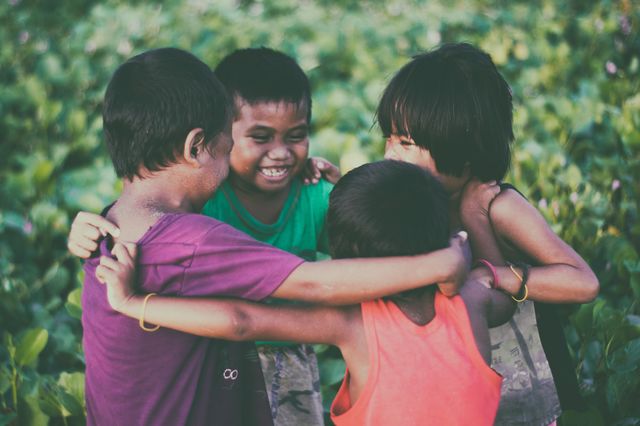
The season of Advent is one of those times when followers of Jesus have the opportunity to be deeply countercultural. While the society and culture in which we live counts down the shopping days of Christmas, we observe the days of Advent. While society and culture decorate with lights and plan festive parties, we reflect on how we incarnate the presence of God in the world. We reflect on what in us gets in the way of this incarnation.
Even the ways we use our language can be countercultural. All around us, in many settings, people use words like hope, peace, joy, and love. During Advent, we reflect deeply upon these words, and we realize that what we mean by them is, often, very different from what they world around us means.
For example, last year during Advent, I offered some reflections on the idea of hope. I spoke of how hope is far more than glib optimism, which is based on the good circumstances we experience now continuing on into the future. Hope is finding ways to give expression today to the promised future that God offers to the world.
This year, I reflect on the Advent theme of joy. I will start with some initial reflections on the meaning of joy. I will begin to wonder how a deeper understanding of joy can invite us to deeper, more meaningful expressions of it in our lives.
Joy comes from a word that carries meanings like pleasure, delight, and bliss. The word often had a sensual or erotic nature to it. Already, we can see ways that we have lost some of the original meaning of joy. We have lost the connection of joy with pleasure.

Two pictures. The first picture is a man sitting at a table eating food. The caption reads that he is ‘enjoying’ a meal, but, really, he is just eating food. The second picture is a man eating an ice cream cone. The caption reads that he is ‘enjoying’ an ice cream, and this time the words fit. It is hard just to eat an ice cream cone. You lick it, and that word alone suggests pleasure, delight, and savoring.
One way to understand the meaning of joy is to make a distinction between joy and happiness. Happiness is based on things going our way, on life unfolding the way we want or expect. Joy is based on something far beyond, or far deeper, than what we want or expect. Happiness is based on circumstances; joy is based on the meaning we find in those circumstances.
But I think there is more to joy than simply framing it as the spiritual correction of what the world calls happiness. There is a way that understanding joy helps us understand the complexity of living life in this world and living the life of faith in this world.
For example, we are not surprised to hear that joy and sadness often come together.

A father loads his daughter’s belongings into the rented trailer. Early the next morning he, his wife, and their daughter drive to the university where the daughter begins her freshman year. Everyone is excited. It is a good trip; everything goes well. And yet, when they enter their home that night without their daughter, the husband and wife fall into each other’s arms and dissolve into tears.
They weren’t crying because anything was wrong; in fact, almost everything was right. They were proud of how they had helped their daughter get to this place in her life. They were confident in her ability. They had done what parents are called to do: give their children wings to fly and let them go. Yes, everything was right, and there was much joy in the rightness, but there was also sadness and tears.
Joy and sadness often come together.
We weep at weddings and laugh at funerals. The borders between grief and gladness are not clear and fixed. We laugh until we cry, we cry until we laugh, and we laugh to keep from crying. Almost all of the powerful moments in life offer us reasons to rejoice and reasons to feel a deep but honest pain.
Writer Robert Fulghum shares these words:
To get through this life and see it realistically poses a problem. There is a dark, evil, hopeless side to life that includes suffering, death, and ultimate oblivion as our earth falls into a dying sun. Nothing really matters. On the other hand, the best side of our humanity finds us determined to make life as meaningful as possible NOW; to defy our fate. Everything matters. Everything. It is easy to become immobilized between these two points of view—to see them both so clearly that one cannot decide what to do or be. Laughter is what gives me forward motion at such intersections. We are the only creatures that both laugh and weep. I think it’s because we are the only creatures that see the difference between the way things are and the way they might be. Tears bring relief. Laughter brings release.
It Was On Fire When I Lay Down On It
We see the difference between the way things are and the way they might be…and we weep.
The movement of our day can reinforce this difference. The alarm forces us from a sleep that we would prefer to continue. We have a job and wish that vacation time—or at least lunch time—would arrive. We wish our family could be together for an evening of laughter and sharing. But everyone is going their own way, and even when you are together, little of importance is shared. We read a newspaper that makes us wish we lived in a world that knew less violence and pain.

We see the difference between the way things are and the way they might be…and we laugh.
Joy, it seems, finds its source and sustenance from something beyond the circumstances of life. Honest faith moans and cries, but it does not stop there; it presses on to find a way to shout, sing, and rejoice. And so, we learn to praise while lamenting, to celebrate while mourning, to laugh while crying.
Yes, “weeping may linger for the night”. It may linger for many nights. It may seem that all we will do is weep. But “joy comes in the morning.” (Psalm 30:5)
In my next post, I’ll explore this source and sustenance of joy that is beyond the circumstances of life.
